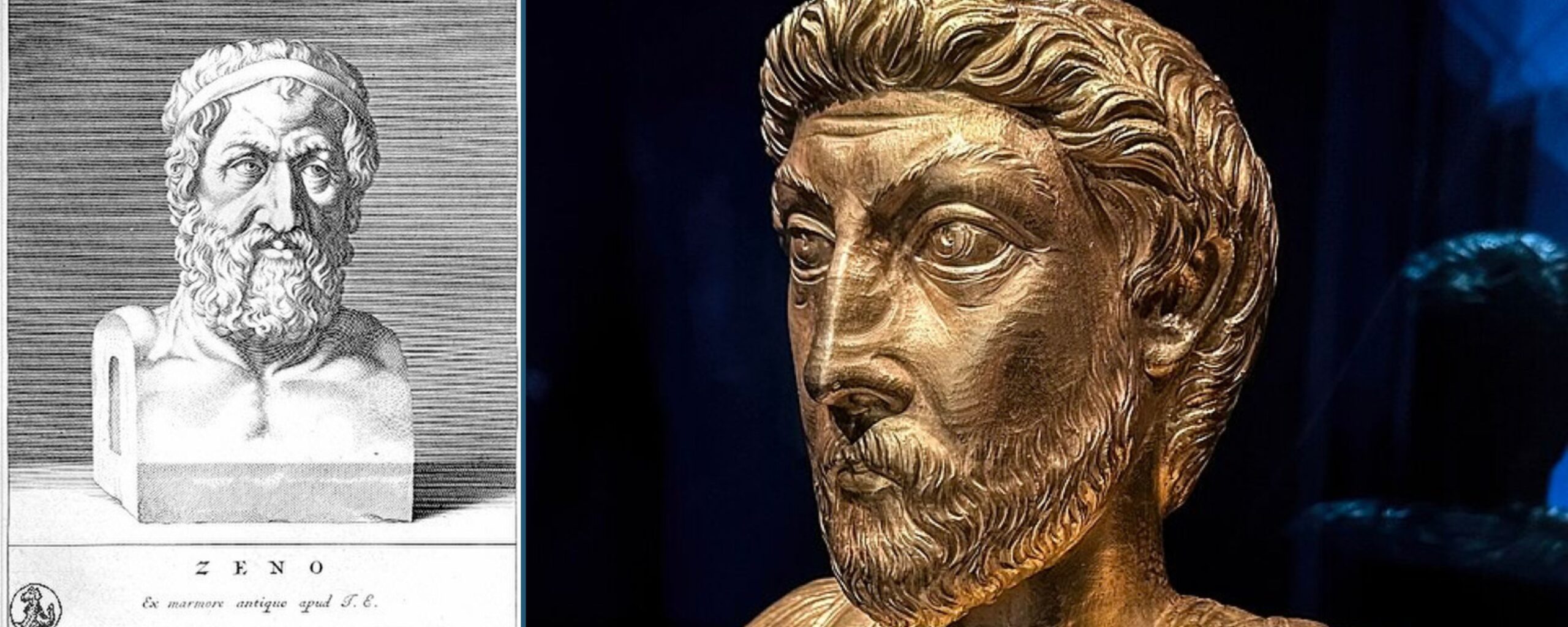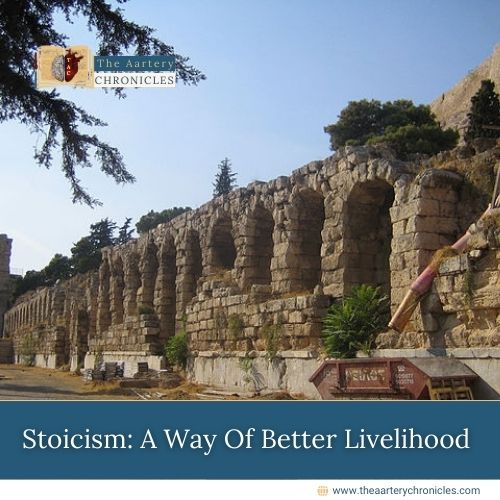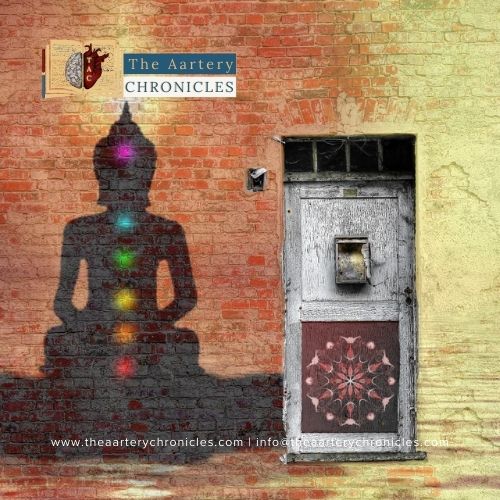
Stoicism: A Way Of Better Livelihood
Introduction
Stoicism, or Stoic philosophy, represents a profound approach to personal ethics and the pursuit of practical wisdom in daily life. Central to this ancient philosophy is the belief that our reactions to events are shaped not by the events themselves, but by our judgments of them—judgments entirely within our control. This foundational principle underscores Stoicism’s practicality in navigating life’s challenges, emphasizing that our focus should be on what we can influence, rather than wasting energy on what lies beyond our sphere of control. As historian Paul Veyne succinctly encapsulated: “Stoicism is not so much an ethic as it is a paradoxical recipe for happiness.”
History of stoicism
Stoicism originated around 300 B.C.E. in Athens, founded by Zeno of Citium, inspired by Socrates and the Cynics. Named after the Stoa Poikile, an Athenian marketplace where early Stoics congregated, it engaged in debates with Skeptics, Academics, and Epicureans. The philosophy flourished in Rome during the Empire, facing persecution from some emperors (e.g., Vespasian, Domitian) while embraced by others (notably Marcus Aurelius).
Stoicism influenced Christianity and various philosophers like Thomas More, Descartes, and Spinoza. In the early 21st century, it experienced a resurgence linked with Cognitive Behavioural Therapy. Stoicism, a form of eudaimonic virtue ethics, posits virtue as essential for achieving happiness. It distinguishes between “indifferent” (such as health and wealth) that affect one’s ability to practice virtue but are not intrinsically tied to happiness.
Focused on ethics as the study of how to live, Stoicism incorporates “physics” (a blend of natural science and metaphysics) and “logic” (encompassing modern logic, epistemology, philosophy of language, and cognitive science). Stoicism remains renowned for its practical approach to daily life, advocating resilience, rationality, and virtue as keys to a flourishing existence.

Case Studies of Stoicism in Practice
Marcus Aurelius (121-180 AD)
Marcus Aurelius, the Roman Emperor known for his Stoic philosophy, wrote extensively in his private journal, known as Meditations. In his writings, he focused on principles such as acceptance of fate, virtue as the highest good, and maintaining inner calm amidst external turmoil. His stoicism guided him through challenging times during his reign, including wars and political intrigue, emphasizing duty and self-discipline.
James Stockdale (1923-2005)
James Stockdale, a United States Navy vice admiral, and Vietnam War veteran, was influenced by Stoic philosophy during his time as a prisoner of war. He credited Stoicism, particularly the teachings of Epictetus, for helping him endure over seven years of captivity. Stockdale’s application of Stoic principles, such as focusing on what is within his control and maintaining a sense of purpose and dignity despite dire circumstances, became well-documented in his later writings and interviews.
Ryan Holiday (born 1987)
Ryan Holiday, a contemporary author, and entrepreneur, has popularized Stoicism in modern contexts through books like “The Obstacle Is the Way” and “The Daily Stoic.” He applies Stoic principles to navigate the challenges of entrepreneurship and daily life, advocating for resilience, emotional control, and a focus on virtue amidst adversity. His practical interpretations of Stoicism have resonated with a broad audience seeking philosophical guidance in today’s fast-paced world.
Epictetus (55-135 AD)
Epictetus, a Stoic philosopher born as a slave, emphasized personal development and ethical living in his teachings. His famous work, “Discourses,” outlines principles of Stoicism that continue to inspire individuals seeking inner tranquillity and moral clarity. Epictetus’s emphasis on distinguishing between what is within one’s control (thoughts, actions) and what is not (external events, other people’s opinions) remains a cornerstone of Stoic practice today.
Cognitive Behavioural Therapy (CBT)
While not an individual case study, CBT has integrated Stoic principles into therapeutic practice. CBT techniques often draw on Stoic concepts such as cognitive restructuring (changing one’s perspective on events), acceptance of discomfort, and mindfulness to help individuals manage stress, anxiety, and depression effectively. This application demonstrates Stoicism’s enduring relevance in psychology and mental health treatment.

Impact of Stoicism on Positive Thinking
- Focus on What You Can Control: Stoicism encourages individuals from all walks of life to concentrate their efforts on things within their control. By shifting focus away from external factors that cannot be changed, such as other people’s opinions or unpredictable events, individuals can reduce stress and anxiety. This approach promotes a proactive mindset where energy is directed towards productive actions and decisions, fostering a sense of accomplishment and positivity.
- Accept Reality: Embracing the Stoic concept of Amor Fati, or love of fate, helps individuals accept and make peace with present circumstances. Instead of resisting or denying reality, Stoicism teaches acceptance. This mindset encourages people to find meaning and opportunity even in challenging situations, promoting resilience and inner peace. By accepting reality as it is, individuals can maintain a more balanced and positive outlook on life.
- Regulate Your Emotions: Stoics emphasize controlling emotional responses to external events. Individuals can manage their emotions by recognizing their internal locus of control. This self-awareness and emotional regulation lead to better decision-making, reduced impulsiveness, and improved interpersonal relationships. Stoicism teaches that by mastering their emotional reactions, individuals can cultivate a more stable and optimistic mindset.
Conclusion
Stoicism offers valuable principles that can enhance positive thinking and well-being for everyone. By focusing on what they can control, accepting reality with grace, and regulating their emotions, individuals can cultivate resilience, inner peace, and a constructive outlook on life’s challenges. These principles empower individuals to navigate life’s ups and downs with greater clarity, purpose, and positivity.










